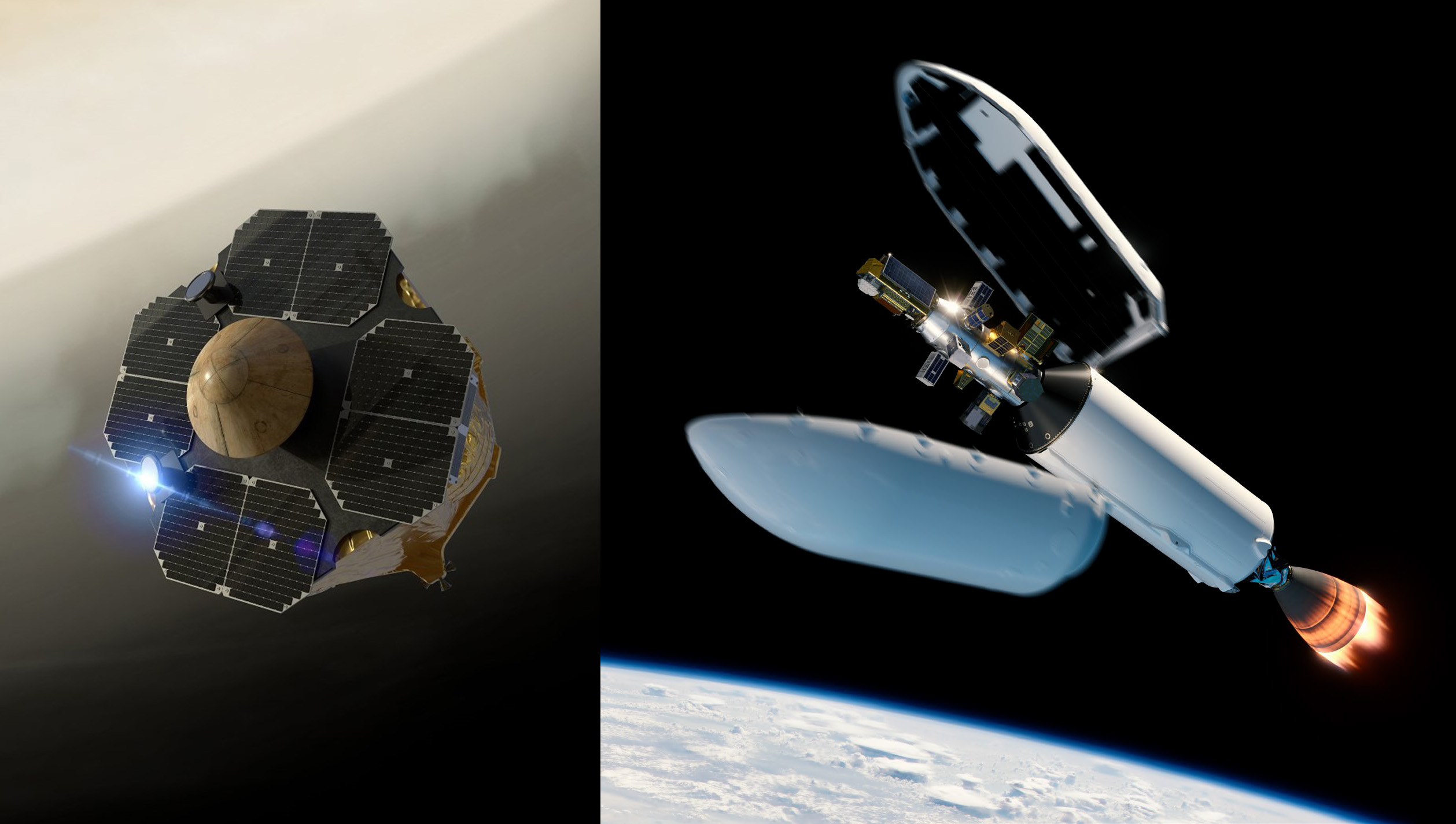
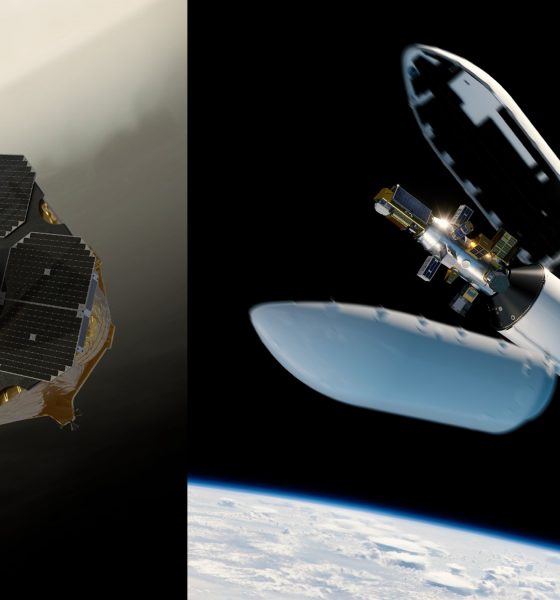
News
SpaceX to launch Varda Space’s first Rocket Lab-derived ‘space factory’ satellite
Startup Varda Space says it has contracted with SpaceX to launch its first satellite – based on a Rocket Lab bus called Photon – on a Falcon 9 rideshare mission in early 2023.
Founded in late 2020, Varda Space says its mission “is to build the first space factory” – or, to be more precise, the first all-in-one space factory. While far from the commercial orbital laboratory many at NASA would like to paint it as, the joint NASA-Russia International Space Station (ISS) routinely hosts payloads from paying customers, some of which are focused on manufacturing (albeit at an absurdly low volume) materials that can only be made in microgravity (i.e. ‘zero-G’). The products those experiments or miniature factories produce are then returned to Earth on one of SpaceX’s Dragons – still the only spacecraft in existence capable of delivering large amounts of cargo from space to Earth more than a decade after its debut.
This is to say that orbital manufacturing is not exactly a new practice and has been ongoing – at a very, very small scale – for years through companies like Made In Space. What Varda Space wants to do, then, is repeat – and, nominally, expand that ISS-proven model. Rather than launching small experiments or mini-factories to the ISS, where a captive ISS crew is often available to troubleshoot or help maintain them, Varda wants to build its own small satellites with tiny reentry capsules capable of returning up to 100 kg (~220 lb) to Earth.
Two months after the company announced it had raised more than $53 million in funding, Varda Space now says that it will launch the first of its custom-built “space factories” on a Falcon 9 rideshare mission in Q1 2023. In August, Varda revealed that it had contracted with small launch company Rocket Lab to purchase three of its Photon satellite buses – each to serve as a sort of mothership for each Varda-built reentry capsule. Based on Rocket Lab’s successful Electron rocket kick stage, Photon adds solar panels, batteries, avionics, more propellant, and optional propulsion upgrades to create an off-the-shelf satellite bus capable of supporting and powering onboard payloads.
Instead of having to build and qualify their own satellites, Photon thus gives certain customers the opportunity to focus their time and resources on developing the payloads they want to deploy and services they want to operate. No need to reinvent the wheel, in other words. Varda Space appears to be the first company intent on fully taking advantage of that opportunity – and to great effect given that the startup has raised more than $50M less than a year after it was founded.
Additionally, with its SpaceX launch contract, Varda Space has also effectively revealed that Rocket Lab has no clause preventing Photon customers from launching their procured satellite buses on rockets not built by Rocket Lab. While dedicated small satellite launchers like Rocket Lab’s Electron offer some benefits, they do so at a huge premium. While an Electron launch carrying 200 kg (440 lb) to a sun-synchronous orbit (SSO) is believed to cost around $7.5M, a slot on a SpaceX rideshare to a similar (but not as perfectly tailored) orbit would cost the same customer about $1M – practically a magnitude cheaper.
Rocket Lab’s Photon likely costs just a few million dollars and comes by default with a propulsion system capable of refining the spacecraft’s orbit after a one-size-fits-all rideshare launch. That means that manifest a Photon-based satellite on a SpaceX rideshare could likely cut the cost of buying and launching a new satellite in half – and maybe further. The question, then, is whether Varda can take those potentially substantial cost savings and design and manufacture a tiny orbital reentry capsule that’s cheap enough to make its free-flying space factories competitive with the International Space Station (ISS).

News
Tesla FSD (Supervised) fleet passes 8.4 billion cumulative miles
The figure appears on Tesla’s official safety page, which tracks performance data for FSD (Supervised) and other safety technologies.

Tesla’s Full Self-Driving (Supervised) system has now surpassed 8.4 billion cumulative miles.
The figure appears on Tesla’s official safety page, which tracks performance data for FSD (Supervised) and other safety technologies.
Tesla has long emphasized that large-scale real-world data is central to improving its neural network-based approach to autonomy. Each mile driven with FSD (Supervised) engaged contributes additional edge cases and scenario training for the system.
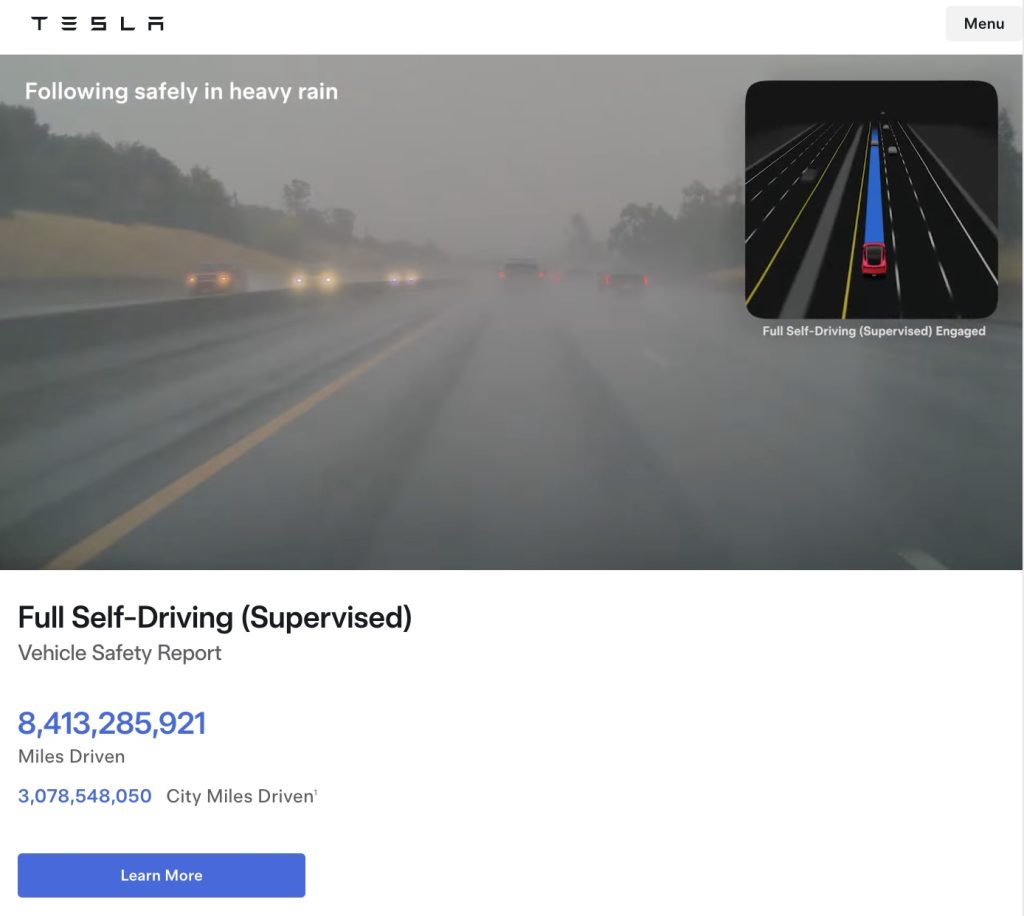
The milestone also brings Tesla closer to a benchmark previously outlined by CEO Elon Musk. Musk has stated that roughly 10 billion miles of training data may be needed to achieve safe unsupervised self-driving at scale, citing the “long tail” of rare but complex driving situations that must be learned through experience.
The growth curve of FSD Supervised’s cumulative miles over the past five years has been notable.
As noted in data shared by Tesla watcher Sawyer Merritt, annual FSD (Supervised) miles have increased from roughly 6 million in 2021 to 80 million in 2022, 670 million in 2023, 2.25 billion in 2024, and 4.25 billion in 2025. In just the first 50 days of 2026, Tesla owners logged another 1 billion miles.
At the current pace, the fleet is trending towards hitting about 10 billion FSD Supervised miles this year. The increase has been driven by Tesla’s growing vehicle fleet, periodic free trials, and expanding Robotaxi operations, among others.
With the fleet now past 8.4 billion cumulative miles, Tesla’s supervised system is approaching that threshold, even as regulatory approval for fully unsupervised deployment remains subject to further validation and oversight.
Elon Musk
Elon Musk fires back after Wikipedia co-founder claims neutrality and dubs Grokipedia “ridiculous”
Musk’s response to Wales’ comments, which were posted on social media platform X, was short and direct: “Famous last words.”
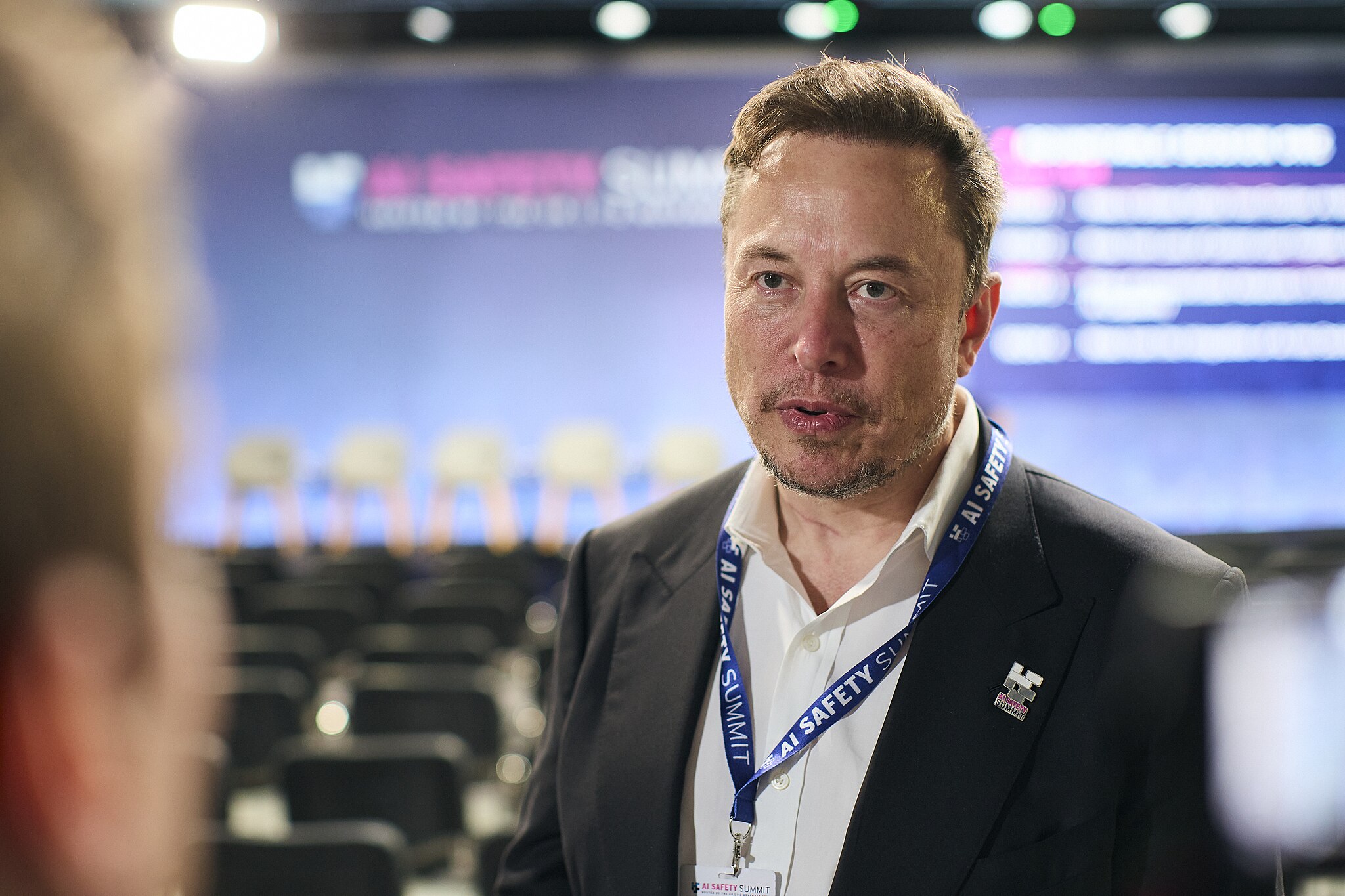
Elon Musk fired back at Wikipedia co-founder Jimmy Wales after the longtime online encyclopedia leader dismissed xAI’s new AI-powered alternative, Grokipedia, as a “ridiculous” idea that is bound to fail.
Musk’s response to Wales’ comments, which were posted on social media platform X, was short and direct: “Famous last words.”
Wales made the comments while answering questions about Wikipedia’s neutrality. According to Wales, Wikipedia prides itself on neutrality.
“One of our core values at Wikipedia is neutrality. A neutral point of view is non-negotiable. It’s in the community, unquestioned… The idea that we’ve become somehow ‘Wokepidea’ is just not true,” Wales said.
When asked about potential competition from Grokipedia, Wales downplayed the situation. “There is no competition. I don’t know if anyone uses Grokipedia. I think it is a ridiculous idea that will never work,” Wales wrote.
After Grokipedia went live, Larry Sanger, also a co-founder of Wikipedia, wrote on X that his initial impression of the AI-powered Wikipedia alternative was “very OK.”
“My initial impression, looking at my own article and poking around here and there, is that Grokipedia is very OK. The jury’s still out as to whether it’s actually better than Wikipedia. But at this point I would have to say ‘maybe!’” Sanger stated.
Musk responded to Sanger’s assessment by saying it was “accurate.” In a separate post, he added that even in its V0.1 form, Grokipedia was already better than Wikipedia.
During a past appearance on the Tucker Carlson Show, Sanger argued that Wikipedia has drifted from its original vision, citing concerns about how its “Reliable sources/Perennial sources” framework categorizes publications by perceived credibility. As per Sanger, Wikipedia’s “Reliable sources/Perennial sources” list leans heavily left, with conservative publications getting effectively blacklisted in favor of their more liberal counterparts.
As of writing, Grokipedia has reportedly surpassed 80% of English Wikipedia’s article count.
News
Tesla Sweden appeals after grid company refuses to restore existing Supercharger due to union strike
The charging site was previously functioning before it was temporarily disconnected in April last year for electrical safety reasons.
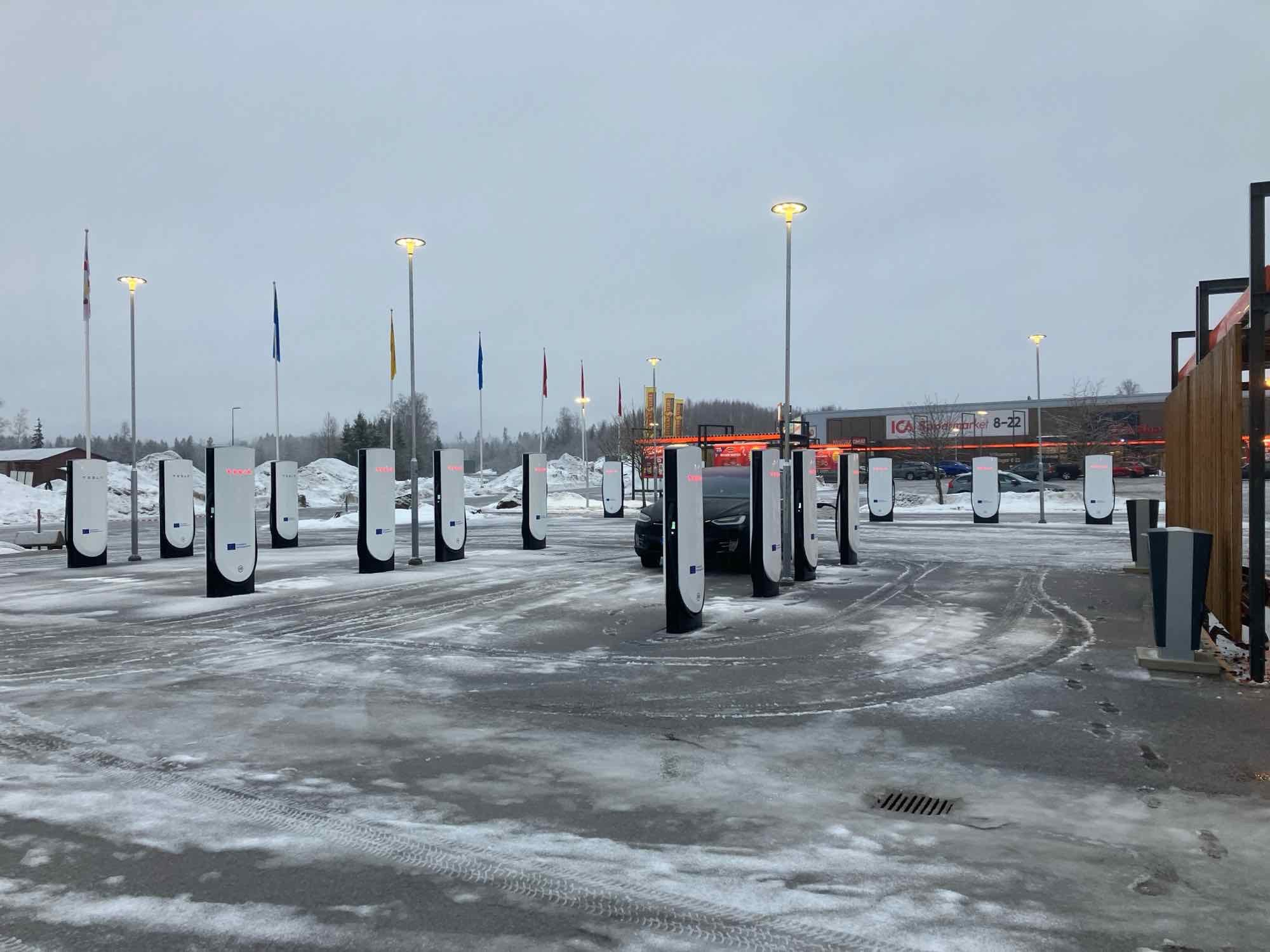
Tesla Sweden is seeking regulatory intervention after a Swedish power grid company refused to reconnect an already operational Supercharger station in Åre due to ongoing union sympathy actions.
The charging site was previously functioning before it was temporarily disconnected in April last year for electrical safety reasons. A temporary construction power cabinet supplying the station had fallen over, described by Tesla as occurring “under unclear circumstances.” The power was then cut at the request of Tesla’s installation contractor to allow safe repair work.
While the safety issue was resolved, the station has not been brought back online. Stefan Sedin, CEO of Jämtkraft elnät, told Dagens Arbete (DA) that power will not be restored to the existing Supercharger station as long as the electric vehicle maker’s union issues are ongoing.
“One of our installers noticed that the construction power had been backed up and was on the ground. We asked Tesla to fix the system, and their installation company in turn asked us to cut the power so that they could do the work safely.
“When everything was restored, the question arose: ‘Wait a minute, can we reconnect the station to the electricity grid? Or what does the notice actually say?’ We consulted with our employer organization, who were clear that as long as sympathy measures are in place, we cannot reconnect this facility,” Sedin said.
The union’s sympathy actions, which began in March 2024, apply to work involving “planning, preparation, new connections, grid expansion, service, maintenance and repairs” of Tesla’s charging infrastructure in Sweden.
Tesla Sweden has argued that reconnecting an existing facility is not equivalent to establishing a new grid connection. In a filing to the Swedish Energy Market Inspectorate, the company stated that reconnecting the installation “is therefore not covered by the sympathy measures and cannot therefore constitute a reason for not reconnecting the facility to the electricity grid.”
Sedin, for his part, noted that Tesla’s issue with the Supercharger is quite unique. And while Jämtkraft elnät itself has no issue with Tesla, its actions are based on the unions’ sympathy measures against the electric vehicle maker.
“This is absolutely the first time that I have been involved in matters relating to union conflicts or sympathy measures. That is why we have relied entirely on the assessment of our employer organization. This is not something that we have made any decisions about ourselves at all.
“It is not that Jämtkraft elnät has a conflict with Tesla, but our actions are based on these sympathy measures. Should it turn out that we have made an incorrect assessment, we will correct ourselves. It is no more difficult than that for us,” the executive said.








